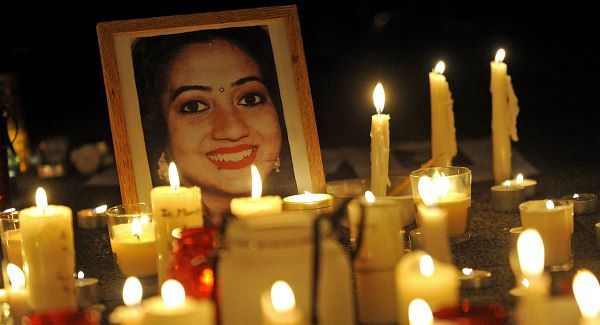Specialist counselling is to be offered to the near 20,000 women and their partners and families who suffer miscarriage, perinatal death, fatal foetal abnormality, termination or who travel for an abortion each year.
Under a new support system every hospital and maternity unit must offer every grieving mother a meeting with a midwife dedicated to helping them deal with the bereavement.
Claire Cullen-Delsol, spokeswoman for the Termination for Medical Reasons Group, said up until now families were getting lost in a lottery-like system of care.
The 31-year-old’s baby daughter Alex died 26 weeks into the pregnancy and was still born after the 20 week scan showed she had Trisomy 13, or Patau syndrome, and would not survive.
“It reads like this will make life much more bearable for us,” she said.
“This is the thing that’s going to help get through this, as long as it’s resourced. If a woman gets that news there needs to be an immediate action plan.
“The main message is that the loss of a child effects a huge number of people. It’s not just the parents – the mother is obviously hugely affected, but it’s the siblings, the parents, brothers, sisters, aunts and uncles. The ripple effect is just devastating.
“As far as bereavement care and counselling is concerned it is all a lottery. It depends where you are.”
In Ireland about 14,000 women suffer miscarriage each year, another 500 perinatal deaths are recorded and there are 3,700 cases of women travelling abroad for a terminations.
The new counselling system was developed by the Health Service Executive (HSE) following the death of dentist Savita Halappanavar in University Hospital Galway in October 2012 after she miscarried and was denied a termination.

It comes after a watchdog’s findings of “grossly inappropriate and traumatising” handling of baby death and maternity cases in Portlaoise Hospital.
Health Minister Simon Harris billed the counselling system as a new beginning.
“I am pleased that the standards will ensure that clinical and counselling services will be in place to support women and their families in all pregnancy loss situations, from early pregnancy loss to perinatal death, as well as situations where there is a diagnosis of a life-limiting or fatal foetal anomaly,” he said.
“I am grateful to the many families who generously shared their experiences during the strategy consultation process and offered suggestions on how care could be improved.”
Mr Harris said he hoped the new regime will give grieving families the care and compassion they need.
All maternity hospitals and units will have teams of bereavement specialists to support grieving parents and families and staff involved in their care
They will include a dedicated clinical midwife who specialises in bereavement care along with obstetricians, paediatricians, neonatologists, chaplains, social workers and palliative care staff.
The initiative states that bereavement care should be a central mission of hospitals and offered in accordance with the religious, secular, ethnic, social and cultural values of the parents.
It asks hospitals to ensure bereavement care and end of life care for babies is organised around the needs of babies and their families.
The new regime also says parents should be invited to meet a consultant neonatologist/paediatrician and the appropriate team to discuss a diagnosis which the HSE describes as a “life-limiting condition”.
It says a mother or parents should receive up-to-date information and contact details of services available if they choose to terminate the pregnancy.


